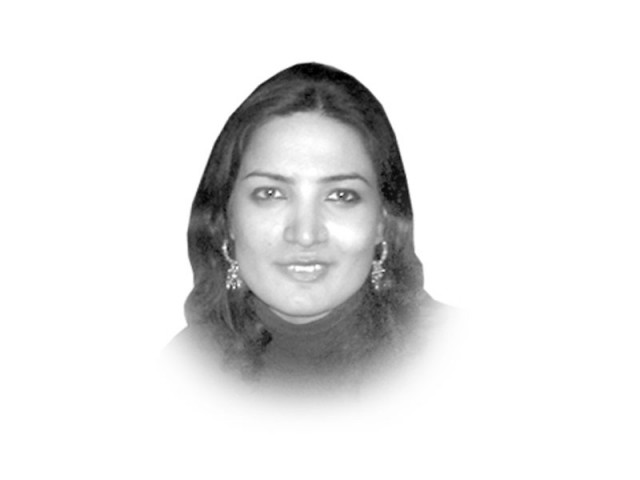Owais’ career options
For him, assaulting random people, including children, is an acceptable way to live and make a living.

Owais’ career options
Owais is seven years old and lives in Karachi, Orangi Town to be precise. His father works as a junior caretaker in a shrine and his mother is a maid. He looks like a smart, happy-go-lucky kid who likes cricket, loves going to school because he gets to hang out with his friends and considers his mother to be the best person in the world. It is only when I started to talk to him about his career choices that I realised what living in a society like ours has done to him and thousands of other children.
Owais wants to join the army which sounds like a decent career option. A lot of kids would want to do that. But when asked why he would like to join the army, says it is because he would have a big gun with which he will be able to intimidate everyone. He also relishes the fact that army personnel are at the top of the food chain and can even beat up the police.
His second career option is to try and join the police. Just like the armed forces, police officials are also powerful people who can do as they wish. In fact, Owais’ own father was once beaten up by the police, he says, for no reason. Owais thinks that if he joins the police force, no one will be able to harm his family except for the army officials because only they are more powerful than policemen.
Owais’ third and least desired career option is to become a maulvi. When asked why, he said that a maulvi is well-respected in the community, receives good food from every house in the neighbourhood and most of all, has unchecked authority on all the children he teaches.
Owais has lived with frequent and continual exposure to the use of guns, knives, drugs and occasional violence in his neighbourhood. He has witnessed shootings and beatings many times in his short life and thinks that only those professions which can offer him some modicum of security are worth pursuing.
Living in a society where it is daily occurrence, Owais thinks violence is a natural state of being. For him, assaulting random people, including children, is an acceptable way to live and make a living. At this point in time, he does not even have access to a television at home, nor does he hang out with adults who indulge in violence. Imagine how he, or any other child like him and who thinks violence is agreeable, will behave when he gets to watch all the violent material available on television. How would this influence his life choices after that?
The responsibility of providing our children with a safe and secure environment falls on all of us –– parents, teachers, clergymen, relatives, government executives, political leaders and actors. It’s about time we learn to get over our petty squabbles for short-term personal and political gains and start thinking about our children.
Published in The Express Tribune, April 7th, 2012.















COMMENTS
Comments are moderated and generally will be posted if they are on-topic and not abusive.
For more information, please see our Comments FAQ